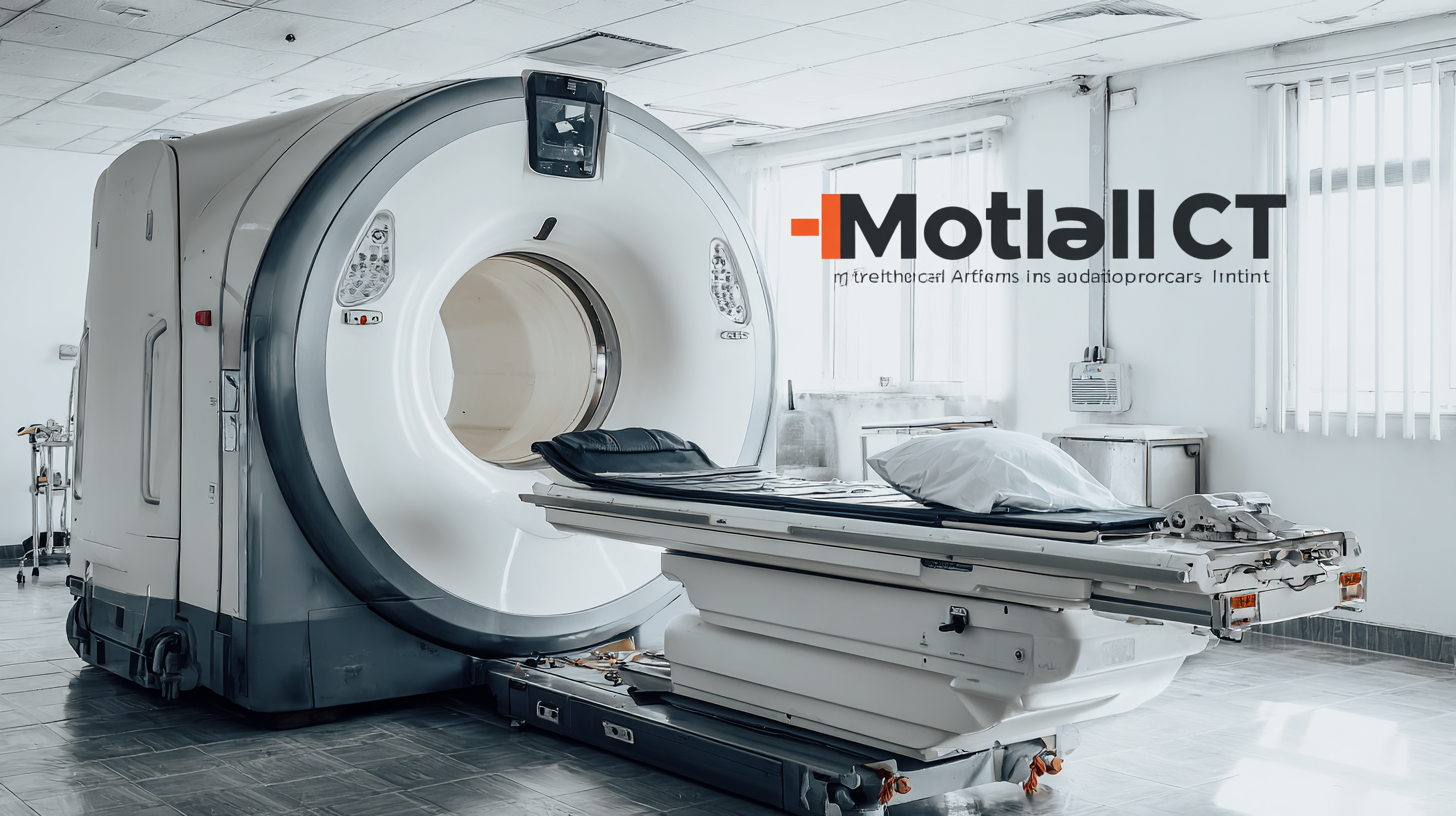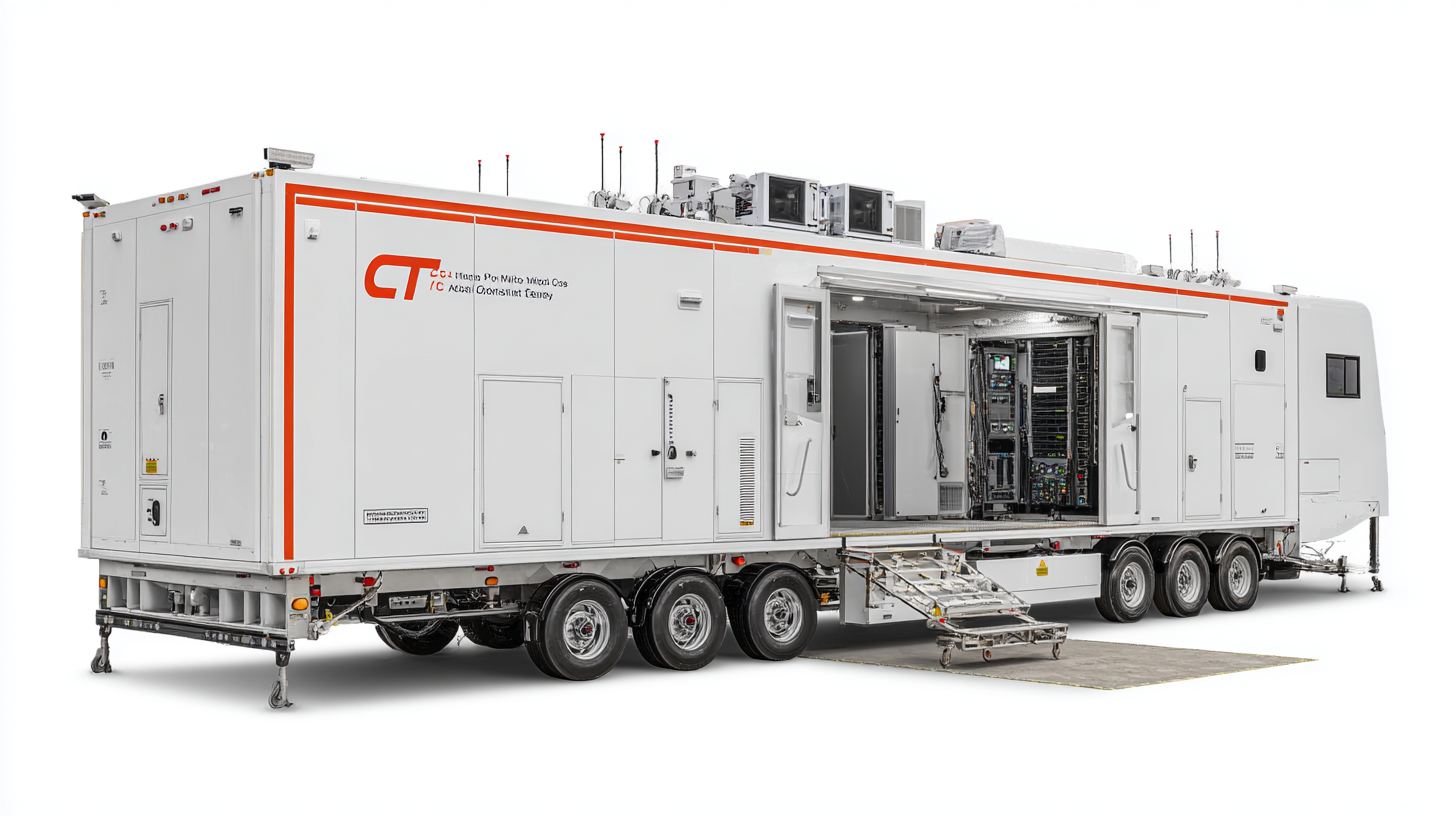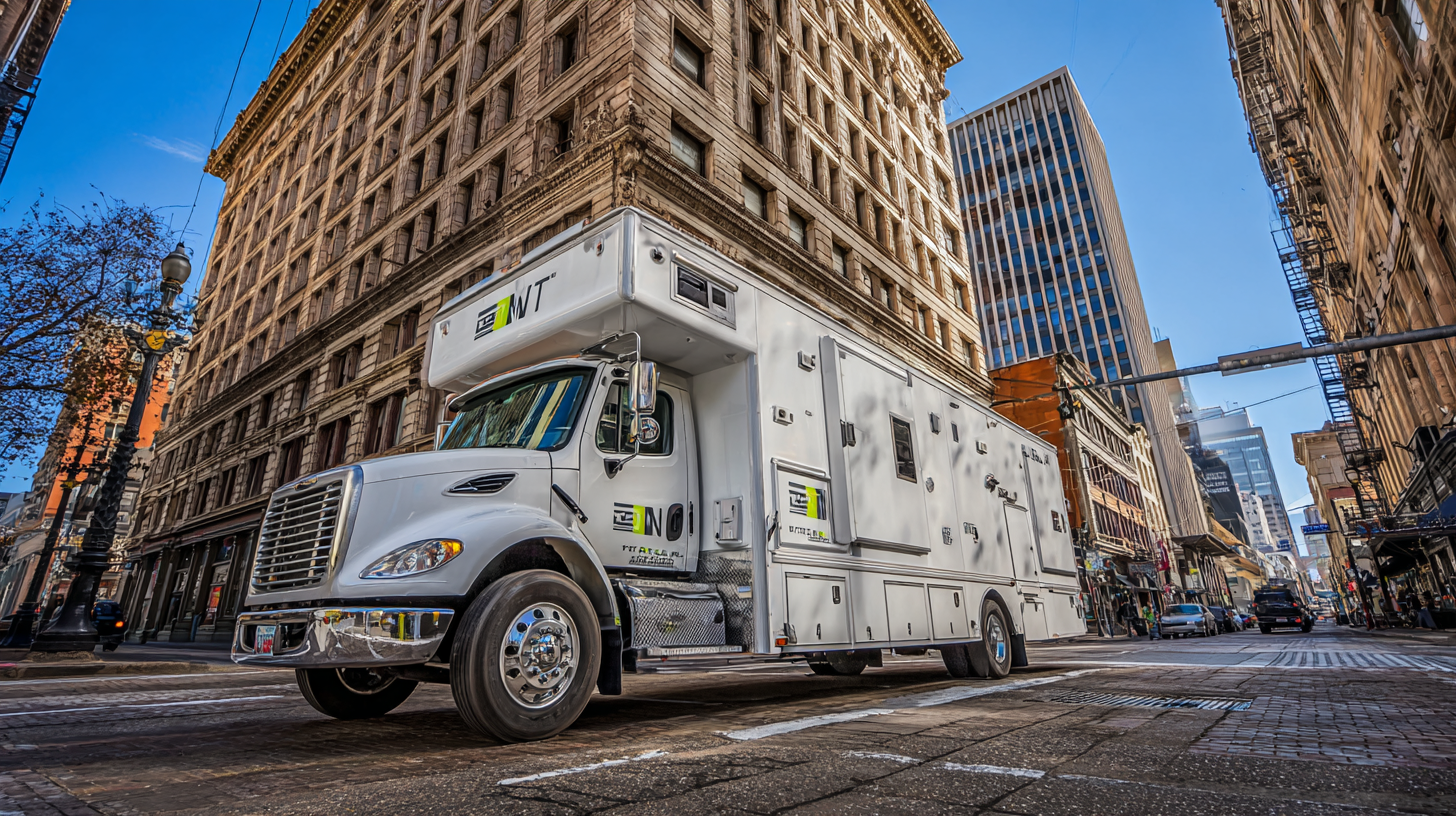The rapid advancement of medical technology has paved the way for innovative solutions such as Mobile CT Rental services, which have become increasingly vital across various industries. According to a report by Grand View Research, the global mobile imaging services market is expected to reach $2.9 billion by 2025, driven by the rising demand for cost-effective and flexible imaging solutions. In healthcare, these mobile CT units provide critical imaging support during emergencies or in remote locations, ensuring timely diagnostics and enhancing patient care. Beyond healthcare, industries such as construction and engineering utilize mobile CT technology for non-destructive testing, showcasing its versatility. This blog will explore the unique features and applications of mobile CT rentals in diverse fields, illustrating how these advanced imaging services cater to specific needs while enhancing operational efficiency.

Mobile CT rentals have gained significant traction in various industries, revolutionizing the way diagnostic imaging is conducted. These portable systems provide advanced imaging capabilities while offering flexibility and convenience, allowing healthcare providers to deliver timely care in diverse settings. From hospitals to emergency medical services, mobile CT units enhance patient outcomes by facilitating swift diagnosis and reducing time spent in transit.
The impact of mobile CT rentals on industry standards cannot be overstated. They not only meet the increasing demand for imaging services but also align with the advancements in medical technology. By enabling real-time imaging in critical situations, such as trauma cases or remote locations, mobile CT units have redefined operational protocols, leading to improved efficiency and better resource utilization. Additionally, rental options allow institutions to access cutting-edge technology without the high fixed costs of ownership, ultimately driving innovation across the healthcare landscape.
Mobile computed tomography (CT) scanners are transforming the landscape of healthcare certification processes in import and export operations. These advanced imaging devices are increasingly recognized for their ability to deliver immediate and high-quality diagnostics, which is vital for ensuring compliance with international health standards. According to a recent industry report, the global mobile CT market is projected to grow significantly due to the rising demand for portable medical imaging solutions, particularly in remote and underserved areas.
For example, Monash University is leading the development of an ultra-light mobile CT scanner designed specifically for rural healthcare. This innovation aims to provide hospital-grade imaging capabilities in locations that typically lack access to advanced diagnostic tools. The introduction of such technology not only accelerates the certification process for exported medical goods but also enhances patient care by ensuring timely diagnosis. Furthermore, the operational deployment of mobile CT scanners at various healthcare facilities signals a proactive shift towards integrating advanced imaging in routine practices, particularly for certification purposes in the import-export sector.
Incorporating mobile CT in the certification processes assures stakeholders that products meet rigorous health standards before reaching global markets. As emerging technologies like miniaturized x-ray emitters found in the latest mobile CT designs come to fruition, the healthcare industry stands poised to enhance patient safety and streamline certification protocols significantly.

The implementation of mobile computed tomography (CT) systems has transformed diagnostics across various sectors. In healthcare, for instance, a report by Grand View Research indicates that the mobile CT market is projected to grow at a CAGR of 9.8% from 2021 to 2028. This growth is driven by the demand for portable imaging solutions, particularly in emergency medical services and remote areas where access to imaging facilities is limited. A case study from a leading hospital used a mobile CT unit during a natural disaster response, facilitating rapid and accurate patient diagnosis, which significantly improved triage and treatment outcomes.
Beyond healthcare, mobile CT has found applications in industrial sectors, particularly in manufacturing and quality control. According to a report by MarketsandMarkets, the nondestructive testing (NDT) market, which includes mobile CT solutions, is expected to reach $8.8 billion by 2026. A prominent automotive manufacturer adopted mobile CT scanning for precise inspections of complex components. This real-time imaging technology not only enhanced product quality but also reduced downtime, ultimately leading to cost savings and greater operational efficiency. These case studies highlight the versatility and effectiveness of mobile CT systems in diverse industries, showcasing their crucial role in modern diagnostics and quality assurance.
This chart illustrates the number of implementations of mobile CT technology across various industries. The healthcare sector leads with the highest number of applications, followed by emergency services and research. This demonstrates the growing reliance on mobile CT solutions to enhance diagnostic capabilities in diverse settings.
The mobile CT rental market has witnessed significant growth across various industries, primarily due to its adaptability and convenience. However, challenges persist in areas related to compliance certification and operational efficiency. Rentals must adhere to specific regulations, ensuring that the equipment not only meets safety standards but also provides accurate diagnostic capabilities. This can pose a considerable hurdle for organizations that lack the resources for regular compliance checks.
One effective solution is to establish partnerships with reputable mobile CT rental providers that offer comprehensive support in compliance certification. These providers often include services such as regular maintenance, updates on regulatory changes, and staff training on equipment use. When selecting a rental service, consider looking for vendors who guarantee compliance with local and national regulations to streamline onboarding processes.
Tips for navigating the challenges of mobile CT rental include conducting thorough research on different providers and their certification processes. Additionally, maintaining open communication with your rental partner will help ensure any potential compliance issues are promptly addressed. Finally, educating your team about the importance of compliance and operational procedures can foster a culture of safety and accountability, further mitigating risks associated with mobile CT usage.

Mobile CT technology is rapidly evolving, offering revolutionary solutions across various industries. One of the key trends shaping the future is the integration of advanced imaging techniques with artificial intelligence. This innovation enhances image clarity and diagnostic accuracy, allowing healthcare providers to make faster, more informed decisions. Furthermore, the ability to transport these CT machines directly to remote or underserved locations ensures that communities gain access to vital medical imaging, thereby improving patient outcomes and promoting health equity.
In addition to healthcare, the potential applications of mobile CT technology extend into global trade sectors. Industries such as logistics and construction are increasingly utilizing mobile CT for non-destructive testing and quality assurance. As companies strive for greater operational flexibility, mobile CT units provide on-site inspections that minimize downtime and enhance safety protocols. This adaptability not only streamlines production processes but also assures compliance with rigorous industry standards, fostering greater trust in product quality across international markets.
| Industry | Application | Benefits | Future Trends |
|---|---|---|---|
| Healthcare | Emergency diagnostics in rural areas | Rapid patient assessment and treatment decisions | Integration with telemedicine for remote consultations |
| Manufacturing | Quality control for components | Enhanced accuracy in defect detection | AI-assisted image analysis for predictive maintenance |
| Construction | Site evaluation and safety inspections | Improved project safety and planning | Mobile CT integrated with drones for site mapping |
| Research | Material analysis for scientific studies | Accurate characterization of materials | Advanced algorithms for real-time data processing |
| Logistics | Inspection of shipping containers | Security and compliance assurance | Blockchain integration for tracking |